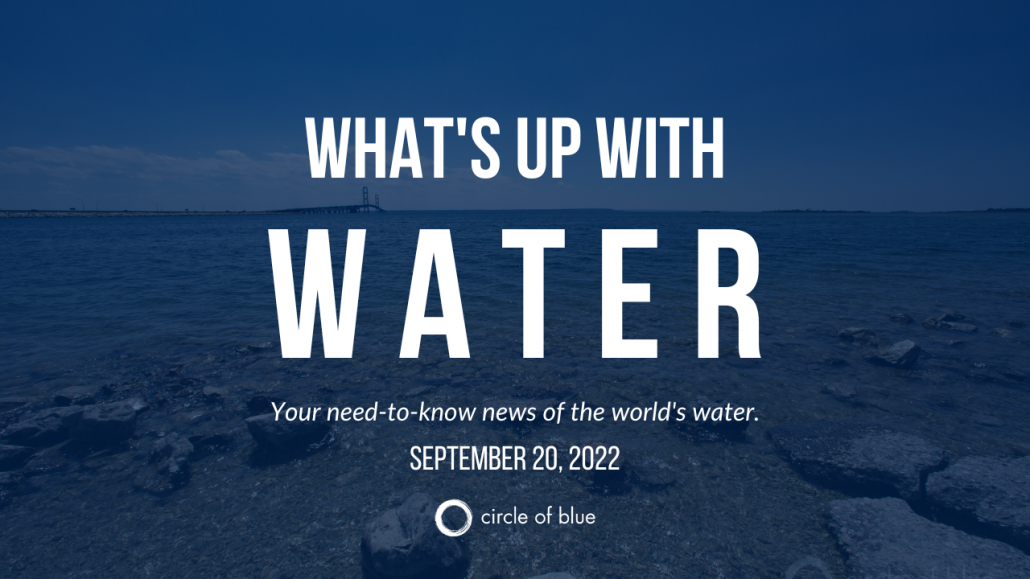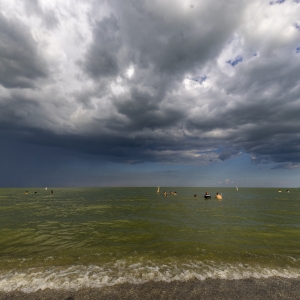Welcome to “What’s Up With Water” – your need-to-know news of the world’s water from Circle of Blue. I’m Eileen Wray-McCann.
In the United States, a ruling by a federal judge in Wisconsin has long-term implications for fossil fuel infrastructure in the Great Lakes region. U.S. District Judge William Conley ruled that the Line 5 oil pipeline has been trespassing on certain tribal lands, according to the Wisconsin Examiner. Easements for those lands, located on the Bad River Reservation in northern Wisconsin, expired in 2013. Line 5 is an oil pipeline that runs through Wisconsin and Michigan before ending at refineries in Ontario. The pipeline is operated by the Canadian energy company Enbridge. The lawsuit over the expired easements was brought by the Bad River Band of the Lake Superior Tribe of Chippewa Indians. The tribe had argued that the pipeline should be decommissioned. While the judge stopped short of demanding that Enbridge shut down Line 5, he did order the pipeline to be rerouted around the reservation within five years, a move that the tribe opposes. The company must also pay damages for trespassing, and the amount for those damages will soon be negotiated in court.
In Africa’s Sahel region, several countries are reeling from a devastating flood season. Save the Children estimates that 150,000 people in Nigeria and Niger have been affected by high waters in recent weeks. In Chad, nearly half a million people have been displaced or experienced property damage. Meanwhile in Sudan, at least 134 people have died in floods since the rainy season began in May. In Nigeria, floods took more than 300 lives this year. Many regions in these countries lack the financial or technical resources to prepare for torrential floods that are caused by land degradation, a changing climate, and poor urban planning. An environmental studies professor in Sudan told local news media that there is an urgent need for a public alert system to give advanced warning of rising waters.
Floods are one water-related risk. Droughts are another. An international research partnership has formed to identify water-risk hot spots that could spark conflict. Members of the Water, Peace, and Security Partnership hope that early warnings and timely interventions can prevent outbreaks of violence. The partnership identified several areas of interest in its most recent update, and drought is a leading factor. Lack of rain is triggering food insecurity in the Horn of Africa, with parts of Ethiopia, Kenya, and Somalia at risk of famine. People in Afghanistan face similar circumstances. Meanwhile, droughts and the threat of failed water supplies could prompt civil unrest in Iraq and South Africa.
And that’s “What’s Up With Water” from Circle of Blue, where water speaks. More water news and analysis await you at
circleofblue.org. This is Eileen Wray-McCann – thanks for being here.






